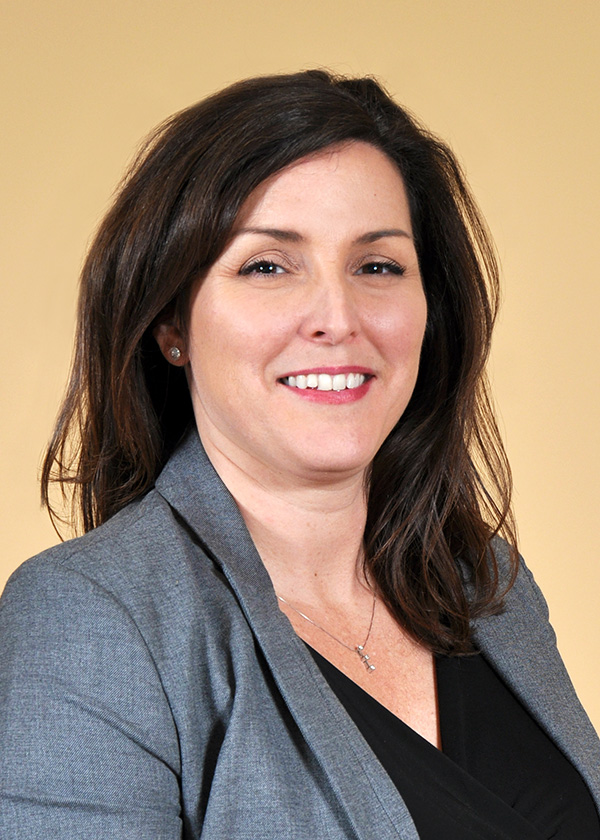|
January – February 2020
A message from Dr. Amy McKenzie
We’re committed to getting people with opioid use disorder the help they need
 More than 500,000 people in Michigan with a substance use disorder fail to receive any treatment for their condition, according to a study released last year by Altarum, an Ann Arbor-based nonprofit health care consulting institute. That sobering statistic was a wake-up call for many people in the health care industry. More than 500,000 people in Michigan with a substance use disorder fail to receive any treatment for their condition, according to a study released last year by Altarum, an Ann Arbor-based nonprofit health care consulting institute. That sobering statistic was a wake-up call for many people in the health care industry.
We’re hoping that a new Blue Cross Blue Shield of Michigan program, centered around medication-assisted treatment, or MAT, will help address this issue and get more people the treatment they need. We announced the MAT Practice Transformation Program to members of the Physician Group Incentive Program at the September 2019 PGIP meeting.
As I wrote in a column a little over a year ago, MAT is the use of medications, in combination with counseling and behavioral therapies, to provide a holistic approach to the treatment of substance use disorders. Research has shown it can be very effective in treating opioid use disorders and helping prevent relapses.
Ever since our CEO Dan Loepp directed us to form an internal opioid task force in 2017, we’ve been directing much of our attention on preventing opioid abuse. Now we’re positioned to focus on the next frontier — treatment for opioid use disorder.
The new MAT program, which launched Jan. 1, 2020, has three main components:
- Improving access to treatment. Working with the Michigan Opioid Collaborative, we’re helping more primary care physicians obtain waiver training to prescribe buprenorphine, one of the medications used to treat patients fighting addiction. MOC is a Michigan Medicine initiative that was formed in partnership with the Michigan Department of Health and Human Services.
MOC will provide necessary support to primary care practices that are adopting MAT, including:
- Peer-to-peer coaching
- Same-day consultations with physicians who have an addiction training specialty
- Information on enrolling in waiver training (more details on waiver training below)
To help increase access, we’ll also be providing financial incentives for practices that provide MAT (more details on incentives below).
- Developing care teams to support patients battling opioid use disorder. Working with the Michigan Institute for Care Management and Transformation and our physician organizations, we’ll be developing care management teams within practices, including nurses, pharmacists, social workers and behavioral health specialists, to better support patients receiving MAT. Eventually, we’ll put together a toolkit of best practices that will help guide physician offices in implementing MAT.
- Putting emergency department physicians on front line of initiating MAT. Working with the Michigan Opioid Prescribing Engagement Network, or Michigan OPEN, we’ll be helping emergency department physicians receive waiver training so they can screen patients for opioid use disorder, initiate MAT treatment and refer patients to MAT providers for continued treatment. Emergency department physicians are in a unique position to address the opioid crisis by providing point-of-care treatment. Patients are often more willing to accept treatment when they’re in the emergency department due to a recent overdose or complication from substance abuse.
Incentives
To help encourage more practices to receive waiver training and offer medication-assisted treatment to people with substance use disorder, we’re offering incentives as follows:
- MAT Practice Transformation Incentive — We’re providing up to $20,000 per practice for those who didn’t deliver MAT in 2019 and begin providing the service. Practices receive $10,000 for the first patient they provide with MAT. Practices will then receive another $10,000 when they treat their 10th MAT patient. This is for Patient-Centered Medical Home-designated practices only.
- Value-based reimbursement — Providers who deliver MAT will receive a 5% fee increase whether they were previous MAT providers or have newly implemented the service. Reimbursement depends on meeting specific thresholds and timelines. Providers should reach out to their physician organization for details.
Waiver training
It’s crucial that a significant number of health care providers throughout the state participate in this program to ensure that people in need have access to trained providers. To help accomplish this, Blue Cross is promoting waiver training sessions for primary care providers at various locations throughout the state.
Editor’s note: See related article, Free waiver training opportunities offered, also in this issue. As additional training sessions become available, we’ll notify you through The Record or web-DENIS.
Initially, only primary care physicians are included in the MAT Practice Transformation Program, but it may be available to other specialties in the future. We’re also looking at expanding the program to our HMO, Blue Care Network.
I firmly believe that if we can increase access to treatment and the capacity of our participating physicians to provide MAT, we can make a tremendous difference in the lives of our patients, their families and others in the state who are suffering from opioid use disorder. As my colleague Dr. William Beecroft, medical director for behavioral health, has pointed out, once a person remains substance free for two years, his or her relapse rate is about the same as someone who has never used opioids at all.
I’m proud that Blue Cross is working to support our physician partners, who are best-positioned to turn around this crisis in our state. We want to make Michigan a leader in providing necessary treatment to those suffering with substance use disorder.
Amy McKenzie, M.D., M.B.A, is the medical director of Provider Engagement. She’s a family practice physician with 13 years of private practice experience. |


 More than 500,000 people in Michigan with a substance use disorder fail to receive any treatment for their condition, according to a
More than 500,000 people in Michigan with a substance use disorder fail to receive any treatment for their condition, according to a